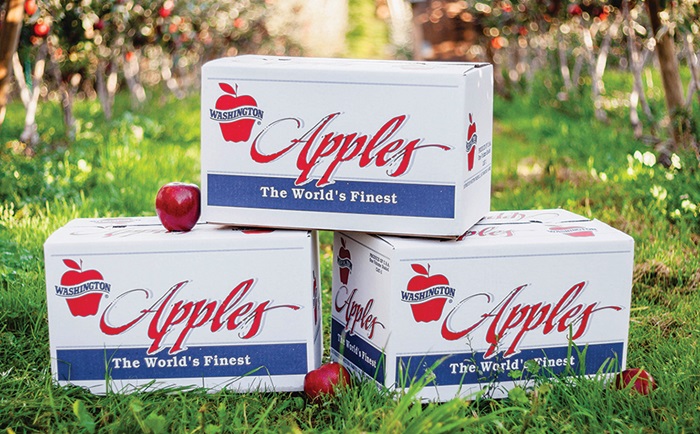After years of trade challenges with India, Washington apple growers are celebrating a resurgence in the Indian market. The trade issues began when the Trump administration imposed tariffs on some Indian exports, prompting India to retaliate with tariffs on American goods, including Washington apples. However, an agreement reached last summer, thanks to the efforts of the Washington state congressional delegation, led to India dropping these tariffs, allowing Washington apples to once again reach Indian grocery stores and markets.
The recent opening of a long-planned Indian consulate in Seattle has further fueled optimism among boosters that the trade relationship between the two regions can deepen. At a celebration at the Port of Seattle’s Terminal 46, U.S. Sen. Maria Cantwell, D-Wash., and India Consul General Prakash Gupta joined port and labor officials and apple growers to commemorate the rebound of apple exports since India lifted retaliatory tariffs.
Washington state, being the top apple producer in the country, considers apples as its most crucial agricultural product. The Pacific Northwest produced nearly 5 billion pounds of apples in 2021, with India being a significant export market worth $120 million for Washington apple growers. However, this market was severely impacted in 2019 when India increased tariffs by 20% on U.S. apples, among other products, in retaliation for tariffs imposed by the Trump administration on Indian steel and aluminum.
Senator Cantwell began addressing the dispute with U.S. Trade Representative Katherine Tai and Commerce Secretary Gina Raimondo in January 2023. She also met with the U.S. ambassador to India and led a letter to President Joe Biden, requesting negotiations to end the retaliatory tariffs.
Before the tariffs were imposed, about a third of Washington state’s apple crop was exported. Last season, before the retaliatory tariffs were lifted, only 24% of the total crop was exported. However, this season, with the tariffs dropped, the percentage is expected to rise closer to 30%.
Since the tariffs were lifted, total apple sales from Washington to India are estimated to be slightly over $16 million for the current season. Last season’s sales were only $1.3 million. This rebound is not only beneficial for apple growers but also for the ports of Seattle and Tacoma, as it increases container traffic.
The opening of the Indian consulate in Seattle is seen as a response to increasing trade connections between India and the Northwest, which has seen a significant increase in the number of Indians and Indian Americans living there. The consulate, which opened in November, is currently at a temporary location in downtown Seattle. Consul General Gupta expressed his desire to strengthen bilateral trade between India and the U.S., especially in Washington, mentioning the possibility of importing Indian coffee to Starbucks and Indian mangoes to the U.S.
Senator Cantwell emphasized the importance of expanding trade opportunities and markets, highlighting Washington’s dependence on trade. She also noted that the future of U.S.-India trade will be influenced by the upcoming presidential election, as former President Donald Trump has proposed a 10% tariff on all imported goods, which could impact trade relations with India.
Despite the challenges, the rebound in apple exports to India signifies a positive turn for Washington apple growers, port officials, and the overall trade relationship between the U.S. and India.
(Source: Seattle Times | Komo | KTVL)









